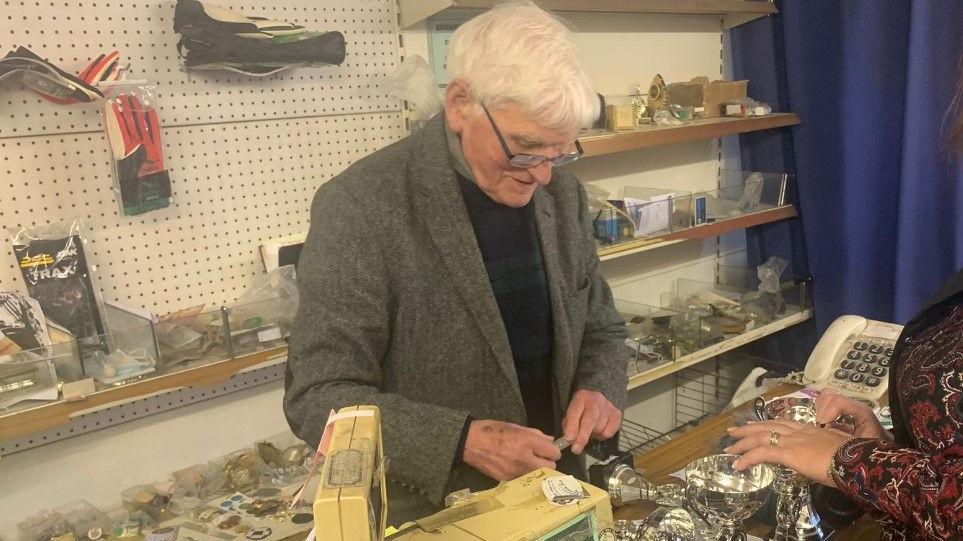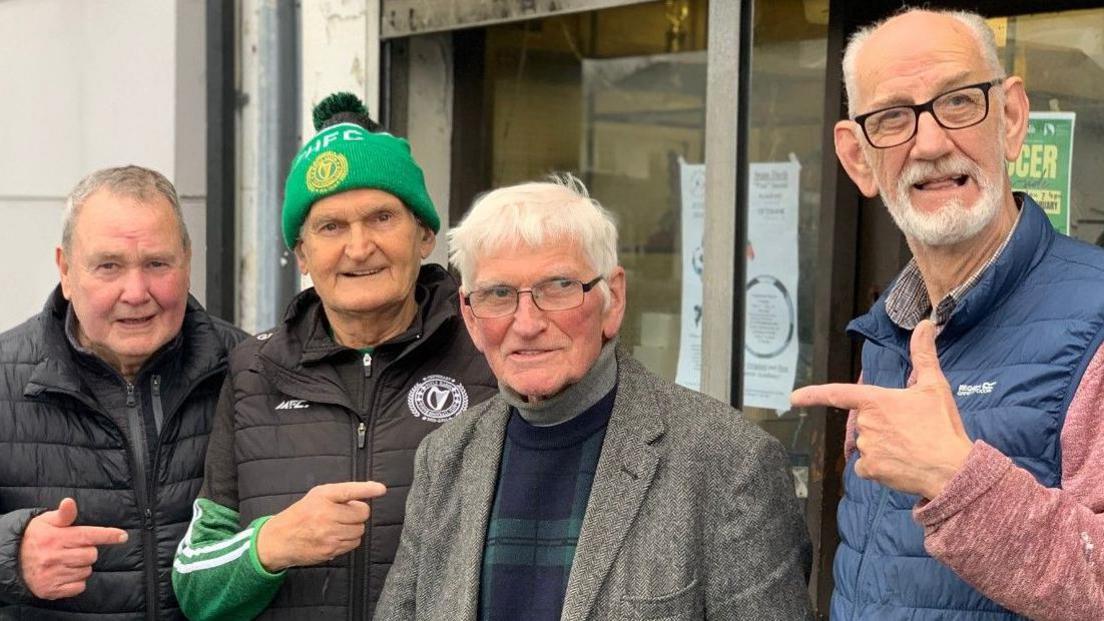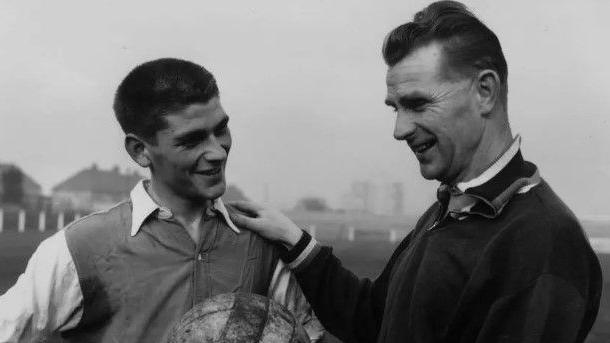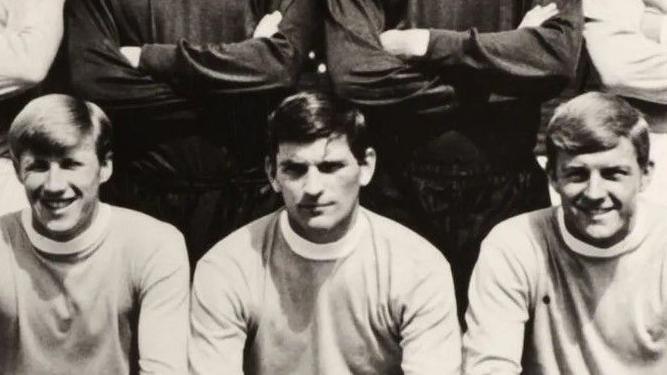Footballer blows whistle on 40 years of trophy sales

Before opening the business in his home city of Derry, John "Jobby" Crossan was widely considered to be one of Northern Ireland's greatest footballers
- Published
It is the end of an era as football legend John "Jobby" Crossan announces that he is selling up his sports and trophy shop in Londonderry.
Before opening the business, "Jobby" Crossan dazzled on the pitch, where he captained Manchester City 94 times and played for Sunderland and Northern Ireland.
He also shared a pitch with George Best, Eusébio and Pelé during a colourful career which began at Derry City.
But he was famously banned for life from playing football in Britain and Ireland after being found guilty by the Irish League of being paid as an amateur.

John 'Jobby' Crossan, pictured with (L-R) Herbie Wade, Gerry Doc and Harry Nelis
Last year, he was the focus of a BBC One film titled ‘True North: The Trophy Shop’, which showcased Jobby's Sport Centre as a meeting point for close friends and Derry’s go-to destination for sporting achievement awards.
The 86-year-old has now decided that, after more than 40 years in business, the time is right to pull the shutters on the shop in Pennyburn.
This is where he supplied generations with football boots, balls and shin-pads and many trophies.
Since the 'For Sale' sign went up, Mr Crossan told BBC Radio Foyle's North West Today and The Mark Patterson Show that had been inundated with well-wishers.
"I am not 17 or 18 anymore, I'm 86 and I think the time is right now to have a wee bit of a rest," he told The North West Today.
"Before I had the shop, I actually owned a bar in the city when I was playing and that's where I got to know how to handle the Derry folk.
"I loved having a yarn with people and everyone would come and talk to me about football."
Mr Crossan said owning any business was not always smooth sailing, but that he had nothing but fond memories of being behind the counter.
"I have always loved the Derry people and they have always been very good to me."
A career of big highs and low lows
Though he went on to find stardom with Manchester City and Sunderland - not to mention his international career - it could all have been so different.
He was given a lifetime ban from football in 1959 just when clubs in England were expressing a serious interest in signing him.
The ban was imposed after negotiations between him and his club Derry City broke down, with a move to England on the cards.

Jobby Crossan (left) - pictured with ex-Northern Ireland manager Peter Doherty - was a star inside forward
When Sunderland made an offer of £6,000 for him, Derry City proposed a deal with Crossan.
Derry City's proposal was that he would sign a professional contract, it would accept Sunderland's offer and Crossan and the club would split the money.
Crossan did not agree, though, and made a counter proposal to Derry City that he would get £5,000 and they would receive £1,000.
But that suggestion was declined, causing a split between the club and the player and leading to the move to Sunderland falling through.
At the end of the season, Crossan left Derry City's Brandywell home to join Coleraine.

Jobby Crossan (centre) - pictured with Colin Bell (left) and Chris Jones (right) - captained Manchester City
Derry City later reported itself to the football league authorities for technical breaches of regulations, which also landed Crossan in trouble.
After an investigation, small fines were imposed on Derry City and Coleraine, but the punishment for Crossan was devastating - a lifetime ban from all forms of football.
The ban was later lifted after an appeal, and in May 1959 he signed for the Dutch club, Sparta Rotterdam.
In 1963, Crossan returned to football in the UK and finally signed for Sunderland.
He became a Northern Ireland international and one of his most celebrated moments in the game was his hat-trick in a World Cup qualifier at Windsor Park in Belfast in May 1965.